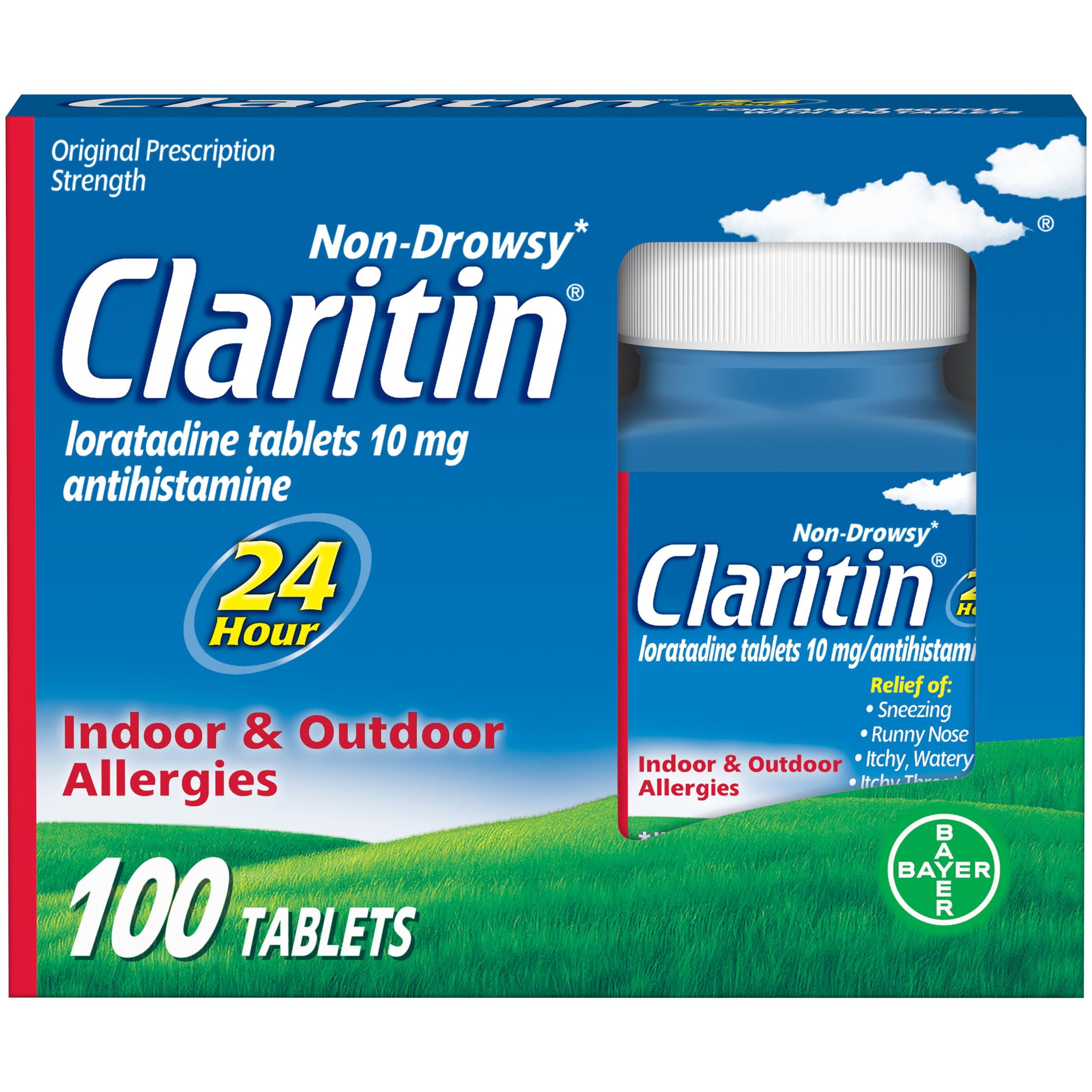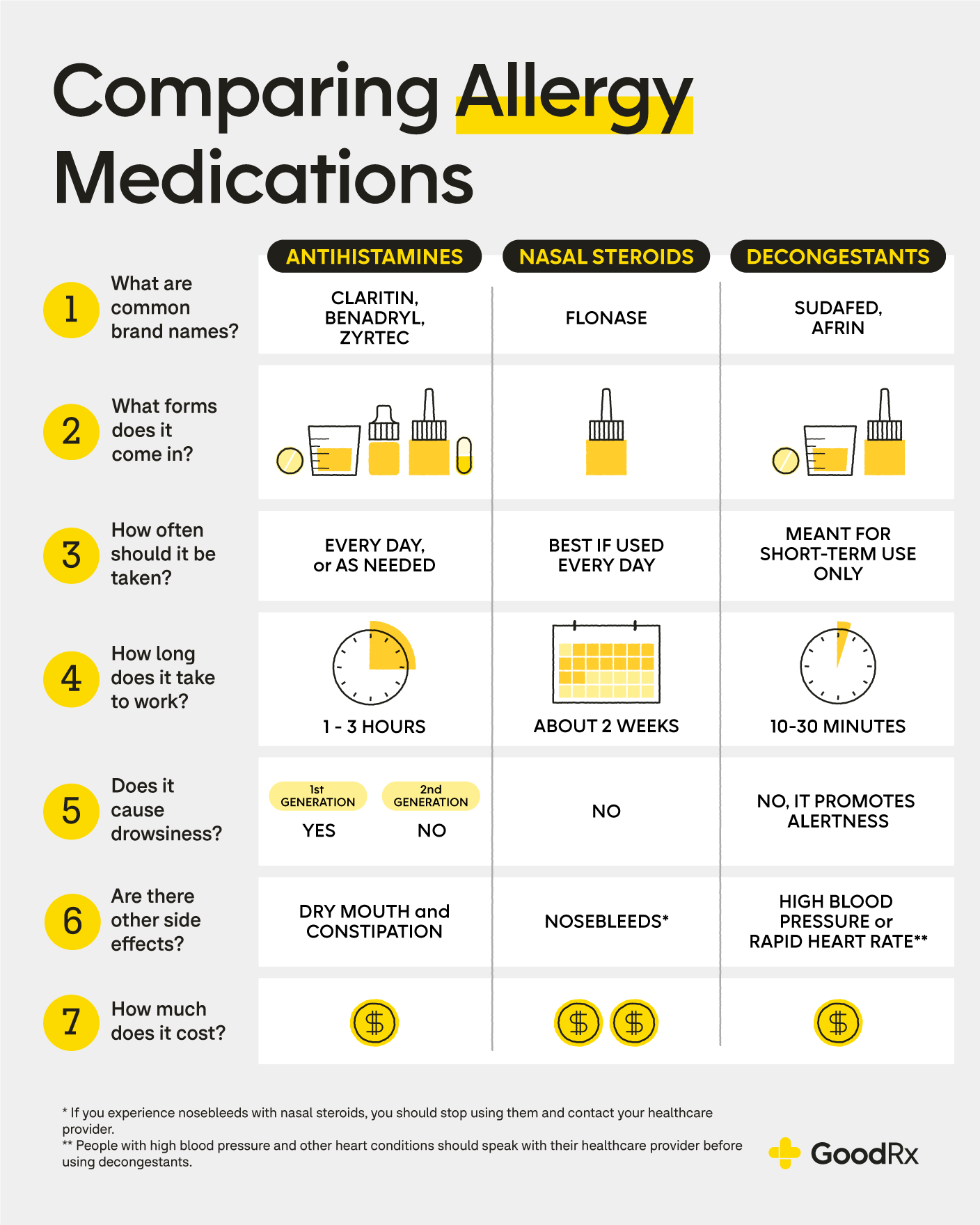Allergies, those pesky immune system overreactions, affect millions worldwide, leading to a cascade of uncomfortable and sometimes debilitating symptoms. From itchy eyes and runny noses to life-threatening anaphylaxis, allergies can disrupt daily life and trigger significant anxiety. Thankfully, a diverse array of allergy medications has emerged to manage these symptoms and improve quality of life. This comprehensive guide will delve into the fascinating world of allergy medicine, exploring its various facets, including:
- Understanding the Roots of Allergies
- Deciphering the Language of Allergy Medications
- Antihistamines
- Decongestants
- Nasal Sprays
- Eye Drops
- Combination Medicines
- Natural and Homeopathic Remedies
- Prescription Options
- Tips for Choosing the Right Allergy Medicine
- Conclusion
Introduction to Allergy Medicines
Before we dive into the world of allergy medications, it’s essential to understand that allergies are not just a nuisance, but a chronic condition that affects millions of people worldwide. According to the American Academy of Allergy, Asthma & Immunology, approximately 50 million Americans suffer from some type of allergy, making it the sixth leading cause of chronic illness in the United States [1]. Allergies can range from mild to severe and can have a significant impact on an individual’s quality of life.
The good news is that there are many effective allergy medicines available today, which can help alleviate symptoms and improve overall well-being. However, with so many options on the market, choosing the right medication can be a daunting task. This comprehensive guide aims to provide you with all the necessary information to navigate the labyrinth of allergy medicines and find the most suitable treatment for your needs.
Understanding the Roots of Allergies
Before embarking on the journey of allergy treatment, it’s essential to understand the underlying mechanisms that trigger these reactions. Allergies arise when the immune system mistakenly identifies harmless substances, like pollen, dust mites, or pet dander, as dangerous invaders. This misidentification leads to the release of histamine and other inflammatory chemicals, resulting in the familiar allergy symptoms.
The immune system plays a crucial role in protecting the body from harmful substances, such as bacteria and viruses. However, in the case of allergies, the immune system overreacts to usually harmless substances and triggers an inflammatory response. This response is what leads to the bothersome symptoms associated with allergies, including sneezing, itching, swelling, and congestion.
Deciphering the Language of Allergy Medications
Navigating the alphabet soup of allergy medications can be daunting. Let’s decode some key terms:
Antihistamines: These medications block the action of histamine, a key chemical responsible for many allergy symptoms. They are often available over-the-counter (OTC) and come in various forms, including pills, liquids, nasal sprays, and eye drops. Antihistamines provide relief from symptoms such as sneezing, itching, and runny nose, but they may not be as effective for congestion [2].
Decongestants: Decongestants work by shrinking the blood vessels in the nasal passages, reducing inflammation and allowing for easier breathing. They are available in both oral and nasal spray forms and can provide quick relief from nasal congestion. However, decongestants should not be used for more than three consecutive days as they can lead to rebound congestion and worsening of symptoms [3].
Nasal Sprays: Nasal sprays are used to reduce inflammation in the nasal passages and help alleviate symptoms such as sneezing, itching, and congestion. There are two main types of nasal sprays: corticosteroids and antihistamines. Corticosteroid sprays, such as Flonase and Nasacort, are available over-the-counter and can provide long-term relief from allergy symptoms when used consistently [4]. Antihistamine nasal sprays, such as Azelastine and Olopatadine, are available by prescription and work by blocking the effects of histamine in the nose.
Eye Drops: Eye drops are used to relieve itchy, red, and watery eyes caused by allergies. Like nasal sprays, there are two types of eye drops: antihistamines and mast cell stabilizers. Antihistamine eye drops, such as Alaway and Zaditor, provide quick relief from allergy symptoms but should not be used for more than a few days at a time due to potential side effects [5]. Mast cell stabilizer eye drops, such as Pataday and Lastacaft, provide more long-term relief and are safe for daily use.
Antihistamines
Antihistamines are the most commonly used medication for treating allergies. They work by blocking the action of histamine, which is released during an allergic reaction. Antihistamines are available in both OTC and prescription forms, with the latter being more potent and effective in managing severe allergies.
Some popular OTC antihistamines include:
- Cetirizine (Zyrtec): This second-generation antihistamine is known for its effectiveness in relieving allergy symptoms without causing drowsiness. It is available in both oral and liquid forms.
- Loratadine (Claritin): Another second-generation antihistamine, Claritin, is also available in multiple forms, including dissolvable tablets, syrup, and chewable tablets.
- Fexofenadine (Allegra): Allegra is a third-generation antihistamine that is known for causing minimal drowsiness and providing quick relief from allergy symptoms. It is available in both OTC and prescription forms.
While antihistamines are generally safe, they do have potential side effects, such as dizziness, dry mouth, and drowsiness. In some cases, they may also interact with other medications, so it’s essential to consult with a doctor before starting any new medication.
Decongestants
Decongestants work by reducing inflammation in the nasal passages, making it easier to breathe. They are available in both oral and nasal spray forms and provide quick relief from congestion. However, decongestants should not be used for more than three consecutive days to avoid rebound congestion, which can worsen symptoms. Oral decongestants include Sudafed and Mucinex-D, while popular nasal sprays include Afrin and Neo-Synephrine.
Decongestants can cause side effects such as nervousness, increased heart rate, and insomnia. They may also interact with certain medications and should be used with caution in individuals with high blood pressure, heart disease, or thyroid problems.
Nasal Sprays
Nasal sprays are an effective way to deliver medication directly to the nasal passages, providing quick relief from allergy symptoms. There are two main types of nasal sprays: corticosteroids and antihistamines.
Corticosteroid nasal sprays: These sprays reduce inflammation in the nasal passages and provide long-term relief from allergy symptoms. Some commonly used corticosteroid nasal sprays include Flonase, Nasacort, and Rhinocort. They are available over-the-counter or by prescription and are safe for daily use.
Antihistamine nasal sprays: These sprays work by blocking the effects of histamine in the nose and provide quick relief from symptoms such as sneezing, itching, and congestion. Some prescription antihistamine nasal sprays include Azelastine (Astelin) and Olopatadine (Patanase). These sprays may cause side effects such as a bitter taste in the mouth, drowsiness, or nosebleeds.
Eye Drops
Eye drops are used to alleviate allergy symptoms affecting the eyes, such as redness, itching, swelling, and watering. There are two types of eye drops: antihistamines and mast cell stabilizers.
Antihistamine eye drops: These drops provide quick relief from itchy, watery eyes but should not be used for more than three days at a time due to potential side effects. Some popular OTC antihistamine eye drops include Alaway and Zaditor, while prescription options include Patanol and Bepreve.
Mast cell stabilizer eye drops: These eye drops work by preventing the release of histamine and other inflammatory chemicals, providing more long-term relief from allergy symptoms. They are safe for daily use and include options such as Pataday, Alomide, and Lastacaft.
Combination Medicines
For individuals with multiple allergy symptoms, combination medicines can provide a convenient and effective solution. These medications typically contain both an antihistamine and a decongestant to target both nasal and non-nasal symptoms. Examples include Claritin-D, Allegra-D, and Zyrtec-D.
While combination medicines can be effective, they may also have a higher risk of side effects compared to single-ingredient medications. It’s essential to read labels carefully and consult with a doctor before using combination medicines, especially if you have underlying medical conditions.
Natural and Homeopathic Remedies

In addition to traditional allergy medications, many people turn to natural and homeopathic remedies for relief. While there is limited scientific evidence to support their effectiveness, some individuals may find relief from these alternative treatments. Some popular options include:
- Butterbur: This herbal supplement has been shown to have antihistamine properties and may reduce symptoms in individuals with hay fever [6].
- Neti pots: These nasal irrigation devices are used to flush out allergens and mucus from the nasal passages, providing relief from congestion and other allergy symptoms.
- Acupuncture: This ancient Chinese practice involves inserting thin needles into specific points on the body to stimulate healing and relieve allergy symptoms.
- Local honey: Some believe that consuming locally produced honey can help desensitize the body to pollen, reducing allergic reactions.
It’s important to note that natural and homeopathic remedies are not regulated by the FDA and may interact with other medications. It’s best to consult with a doctor before trying any new treatment.
Prescription Options

For severe or persistent allergies, prescription medications may be necessary. Some options include:
- Leukotriene modifiers: These medications block the action of leukotrienes, which are inflammatory chemicals released during an allergic reaction. They can help alleviate symptoms such as sneezing, itching, and congestion. Examples include Singulair and Accolate.
- Corticosteroids: In some cases, oral or injectable corticosteroids may be prescribed to reduce inflammation and provide relief from severe allergy symptoms. These medications should only be used under the guidance of a doctor due to potential side effects.
- Allergy shots (immunotherapy): This treatment involves exposing the body to gradually increasing doses of the allergen to desensitize the immune system and reduce allergic reactions. Allergy shots are typically recommended for individuals with severe allergies or those who do not respond well to traditional medications.
Tips for Choosing the Right Allergy Medicine
With so many options available, finding the right allergy medicine can be overwhelming. Here are some tips to help you make an informed decision:
- Start with OTC options: If you have mild allergies, starting with an OTC medication can often provide relief. These medications are easily accessible and can be a cost-effective option.
- Consider your symptoms: Different allergy medications target different symptoms. If you have nasal congestion, a decongestant or nasal spray may be more effective. For itchy, watery eyes, eye drops may be the way to go.
- Consult with a doctor: If OTC medications are not providing adequate relief, or if you have severe or persistent allergies, it’s best to consult with a doctor. They can recommend prescription options or alternative treatments that may be more suitable for your specific needs.
- Be aware of potential side effects: Allergy medications can cause side effects, so it’s essential to read labels carefully and consult with a doctor if you have any underlying medical conditions.
- Keep track of your symptoms: It’s helpful to keep a symptom diary to track your allergy symptoms and determine which medications are most effective for you.
Conclusion
Allergies may be a common condition, but they can have a significant impact on an individual’s quality of life. With the wide variety of allergy medications available today, finding the right treatment can significantly improve symptoms and overall well-being. Whether you opt for traditional antihistamines or natural remedies, consulting with a doctor is always recommended to ensure the safest and most effective course of treatment. Remember to listen to your body, keep track of symptoms, and don’t be afraid to try different options until you find the one that works best for you.

